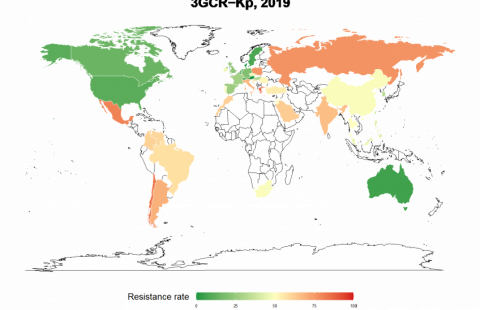
For a deeper insight into the social and epidemiological challenges posed by the exceptional prevention measures taken in response to the COVID-19 pandemic – particularly confinement – a multidisciplinary group of researchers has joined forces with Inserm and the Public Health Agency to launch a survey of around 200,000 participants from five major French cohorts.
In response to the COVID-19 pandemic that is currently raging across most of the world, exceptional prevention measures are being implemented – with possibly the most striking example being the confinement of a large part of the population. In the face of this measure, on such an unprecedented scale in our history, many questions are emerging in regard to health, quality of life, social relationships, and the education of children. In order to obtain answers to these questions, deepen our understanding of the short and long-term consequences of the measures, and better describe the frequency of COVID-19 symptoms in the general population, the role of the scientific community is of primary importance. These efforts complement the clinical studies being conducted in hospitals to identify the most effective treatments and understand the outcomes of hospitalized COVID-19 patients.
A multidisciplinary group of researchers from Inserm, France’s National Institute for Demographic Studies (Ined), National Center for Scientific Research (CNRS), Université Paris-Saclay, Sorbonne Université, Sorbonne Paris Nord and Université Paris Dauphine-PSL, National Health Insurance Fund (CNAM), Institut Gustave Roussy and the National Research Institute for Agriculture, Food and Environment (INRAe), covering fields as varied as epidemiology, sociology, demographics and economics, has been established in order to study the principal epidemiological and social challenges of this epidemic via a major national study conducted in the population. Approved by the French Data Protection Authority (CNIL), this study is part of an accelerated procedure implemented in order to tackle the challenges of this health crisis.
The SAPRIS study (“Santé, pratiques, relations et inégalités sociales en population générale pendant la crise COVID-19 – General population health, practices, relationships, and social inequalities during the COVID-19 crisis“) is coordinated by Nathalie Bajos, Inserm Research Director, sociologist and demographer, and Fabrice Carrat, Professor of Public Health at Sorbonne Université, in collaboration with the French Public Health Agency.
It is based on the five large national general population cohorts (Constances – Etude familiale E3N-E4N – Elfe / Epipage 2 – NutriNet Santé) and is being conducted in close coordination with their leaders.
“The advantage of these cohorts is that they concern several tens of thousands of people who have been followed up for years already, whose pre-epidemic lifestyles, dietary habits, health, treatment consumption, work activities and biological data are finely detailed”, enabling the researchers to study the impact of confinement by documenting social and geographic inequalities of risk exposure and living conditions, and to characterize the factors relating to vulnerability to and severity of the infection, emphasize Bajos and Carrat.
Using a questionnaire filled in at the start of April, which will be repeated several times during confinement and once it has ended, the SAPRIS study will ask the participants about the specific challenges of the epidemic and the confinement measures. Particular attention will be paid to the incidence of COVID-19 symptoms and other health problems, the use of treatment for other health conditions or failure to seek treatment, the perception of risk to oneself and in general, the effects of the prevention measures on daily life, social relationships, work, and the education of children.
Once serological tests are available, it will be possible to establish the prevalence of COVID-19 based on self-sampling offered to the study participants, which will provide information on prevalence on a national scale.
These contents could be interesting :
Pour accéder au site du projet SAPRIS : https://www.sapris.fr

